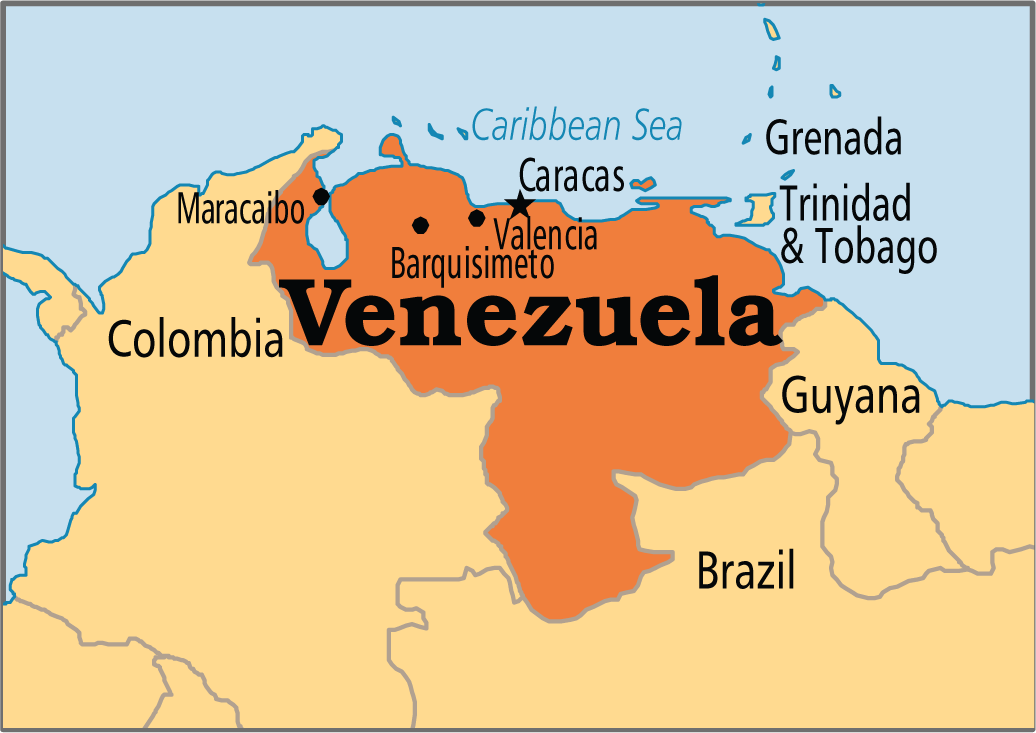
Venezuela Crisis | 31 Jan 2019
- The leader of Venezuela’s National Assembly, Juan Guaido has declared himself as president of Venezuela on January 23, challenging the power of current President Nicolas Maduro, who was recently sworn in as president of Venezuela for a second consecutive term.

- The United States has officially recognized Juan Guaido as the legitimate president of Venezuela. Several EU nations, including France, Britain, Germany, and Spain have said they would recognize Guaido if President Maduro doesn't announce new elections.
- However, Russia, Turkey, Iran, and China have supported President Nicolas Maduro and called him as the legitimate president of Venezuela.
- The US has also imposed sanctions on Venezuela's state-run oil company, Petróleos de Venezuela, S.A (PVDSA).
Reasons for the crisis in Venezuela
- Economic Reason
- Venezuela has the highest proven oil reserves in the world. The economy of Venezuela is mainly oil-based.
- During the early 2000s, when oil prices were high, the Venezuelan government has used oil profits to reduce inequality and poverty, providing food subsidies.
- When oil prices dropped in 2014, the government suddenly had to make lots of cutbacks. This led many people to begin buying goods on the black market, causing inflation to rise.
- Currently, the annual inflation rate in Venezuela has reached 1.3 million%. This has led to the scarcity of basic items such as food and medicines and demonstrations against the government.
- Political Crisis and Corruption
- Current president Nicolas Maduro took charge after former president Hugo Chávez died in 2013.
- The government of President Maduro also faced the charges of corruption and mismanagement of the economy.
- Mr. Maduro was sworn in for a second term recently. But, his main opponents either boycotted or were banned from running in the election.
- After the result of the election was announced, massive protests erupted in Venezuela.
Impact
- Global
- Crisis in Venezuela may lead to a rise in global oil prices as Venezuela is a major oil exporter and a member of OPEC.
- With US and Russia supporting opposite factions in Venezuela. Venezuela is likely to become a region for super-power rivalry as seen recently in Syria.
- India
- Rise in global oil prices is not good for India as it is the world's third-largest oil importer.
- Venezuela was also India's fourth-biggest crude supplier after Iraq, Saudi Arabia, and Iran and accounts for about 12% of India's total oil imports. So sanctions against Venezuela along with US sanctions on Iran will impact oil availability in the country.
- Sanctions on Venezuela will also impact the payment of roughly $520 million of backlog dividends that Venezuela’s state-run oil firm PDVSA owes to ONGC Videsh Limited (OVL).

